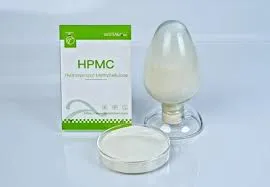
Nov . 07, 2024 11:35 Back to list
Hydroxyethyl Cellulose Powder Applications and Benefits in Various Industries
Hydroxyethyl Cellulose Powder An Overview
Hydroxyethyl cellulose (HEC) powder is a non-ionic, water-soluble polymer derived from cellulose, a natural polymer obtained from plant cell walls. The cellulose undergoes etherification, a chemical process that replaces hydroxyl groups with hydroxyethyl groups, resulting in HEC. This modification enhances its solubility and functional properties, making it a versatile additive in various industries including pharmaceuticals, cosmetics, food, and construction.
Properties of Hydroxyethyl Cellulose Powder
One of the defining characteristics of hydroxyethyl cellulose is its ability to retain moisture. This property makes it an excellent ingredient in cosmetic formulations, where it is used as a moisturizing agent, a film-former, and a thickener. In gel formulations, HEC contributes to the product's texture, allowing for a smooth application. Furthermore, HEC is known for its good emulsifying properties, which help stabilize oil-in-water and water-in-oil emulsions.
Another significant aspect of HEC is its viscosity control. When dissolved in water, HEC produces a viscous solution, and the viscosity can be adjusted based on the concentration used. This feature is particularly useful in the pharmaceutical industry, where it acts as a binder in tablet formulations and a thickening agent in liquid medicines. HEC is also stable across a wide range of pH levels, making it suitable for various applications without altering the product's performance.
Applications of Hydroxyethyl Cellulose Powder
1. Pharmaceuticals In the pharmaceutical industry, HEC is utilized for its binding, thickening, and stabilizing properties. It is commonly found in oral care products like mouthwashes and toothpaste. Its ability to hold moisture makes it an outstanding component in topical creams and gels, aiding in drug delivery and enhancing the effectiveness of active ingredients.
hydroxyethyl cellulose powder

2. Cosmetics and Personal Care HEC is widely used in cosmetic formulations due to its excellent thickening, emulsifying, and moisture-retention properties. It is commonly found in products such as lotions, shampoos, and conditioners. The use of HEC helps enhance the texture and stability of these products, improving user experience and satisfaction.
3. Food Industry In food applications, hydroxyethyl cellulose serves as a thickening agent, stabilizer, and emulsifier. It is often employed in products such as dressings, sauces, and bakery goods. HEC can help improve the texture of food items while extending shelf life by preventing the separation of ingredients.
4. Construction In the construction industry, HEC is valued for its water-retention capacity and thickening properties. It is commonly added to mortars, plasters, and dry mix adhesives to enhance workability, improve adhesion, and control the setting time. Its inclusion in construction materials helps ensure that they perform well, even in challenging conditions.
Safety and Environmental Considerations
Hydroxyethyl cellulose is generally regarded as safe, with low toxicity levels in acute and chronic exposure scenarios. It is non-irritating to the skin and eyes, making it suitable for use in cosmetic and personal care products. Additionally, HEC is biodegradable, which aligns with the increasing demand for environmentally friendly materials in today's eco-conscious market.
Conclusion
Hydroxyethyl cellulose powder stands out as a crucial ingredient across multiple industries due to its unique properties and versatility. From improving the texture and stability of cosmetic products to enhancing the efficiency of pharmaceuticals and food items, HEC plays a multifaceted role. Its ability to control viscosity, retain moisture, and stabilize emulsions makes it an essential additive that contributes to product performance and consumer satisfaction. As industries continue to evolve and seek innovative solutions, hydroxyethyl cellulose will likely remain a key player in the development of new products. Its safety and environmental compatibility further reinforce its importance, ensuring that HEC will continue to be a valued component in formulations for years to come.
-
Versatile Hpmc Uses in Different Industries
NewsJun.19,2025
-
Redispersible Powder's Role in Enhancing Durability of Construction Products
NewsJun.19,2025
-
Hydroxyethyl Cellulose Applications Driving Green Industrial Processes
NewsJun.19,2025
-
Exploring Different Redispersible Polymer Powder
NewsJun.19,2025
-
Choosing the Right Mortar Bonding Agent
NewsJun.19,2025
-
Applications and Significance of China Hpmc in Modern Industries
NewsJun.19,2025







